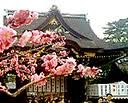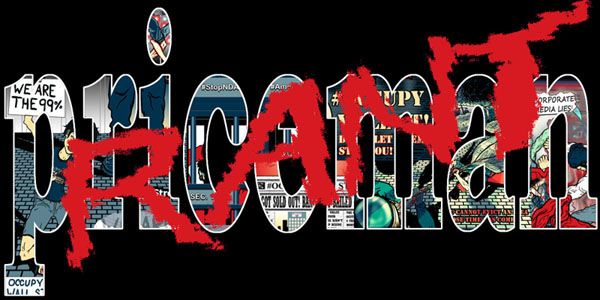“Punting the Pundits” is an Open Thread. It is a selection of editorials and opinions from around the news medium and the internet blogs. The intent is to provide a forum for your reactions and opinions, not just to the opinions presented, but to what ever you find important.
One of our featured articles was an interview with former Republican congressional staffer, Michael Lofgren and his essay on America’s “Deep State” where elected and unelected officials collude to protect and serve powerful, vested interests. For today’s Pundits, here are some of the perspectives to Mr, Lofgren’s article that were featured at “Moyers and Company.”
Thanks to ek hornbeck, click on the link and you can access all the past “Punting the Pundits”.
Follow us on Twitter @StarsHollowGzt
Andrew Bacevich on Washington’s Tacit Consensus
What words best describe present-day Washington politics? The commonplace answer, endlessly repeated by politicians themselves and media observers alike, is this: dysfunction, gridlock, partisanship and incivility. Yet here’s a far more accurate term: tacit consensus. Where Republicans and Democrats disagree, however loudly, matters less than where their views align. Differences entertain. Yet like-mindedness, even if unacknowledged, determines both action and inaction.
In the ‘Bill-W.-Obama’ era, a neoliberal consensus defines American politics. In his classic text, The American Political Tradition, the historian Richard Hofstadter identified the parameters of that consensus. It emphasizes, he wrote, “the rights of property, the philosophy of economic individualism, [and] the value of competition.” It assumes “the natural evolution of self-interest and self-assertion … into a beneficent social order.” Grab and get ultimately works for the larger benefit of all. That, at least, is the idea.
Juan Cole on the Vulnerability of the Network
Mike Lofgren’s long experience on the Hill has given him a small window, he might say only an aperture, into a vast network of unaccountable governmental and private institutions he calls the “Deep State” in his essay. There is much that is valuable in his explication of these networks, which depend on public tax money for their operation but typically do not answer to the public in any significant way. Indeed, the public is assiduously kept in the dark about much of what they do.
The danger of this invisible institutional latticework to any but a dryly procedural notion of democracy is obvious. Its menace to individual privacy and liberty is obvious. If absolute power corrupts absolutely, invisible power corrupts invisibly.
Let me, however, push back a little bit against Lofgren’s conceptual apparatus. Egypt also has a Deep State, but the young revolutionaries who overthrew the president for life in 2011 warned against using the very conception, since, they said, it overstated the paper tiger of elite power and could discourage popular action to rein it in.
Forget about the Machiavellian drama that plays out in the hit series The House of Cards, if you really want to be educated (or frightened) about what goes on in the nation’s capital, just let everything you read in Mike Lofgren’s essay sink in. [..]
The ideological gridlock that grips Congress might make you angry. But as Lofgren points in his professorial manner, what should really get your blood pumping are the strings being pulled by the real decision makers: the executives on Wall Street, in Silicon Valley and in the military-intelligence industrial complex surrounding the Beltway.
The really creepy part is that a lot of this corruption (the revolving doors, lobbying activities and campaign contributions, for instance) is legal. Mull that over: We’ve passed laws allowing the “Deep State” to not only exist, but also to flourish.
Henry Giroux on Resisting the Neoliberal Revolution
The notion of the “Deep State” as outlined by Mike Lofgren may be useful in pointing to a new configuration of power in the US in which corporate sovereignty replaces political sovereignty, but it is not enough to simply expose the hidden institutions and structures of power.
What we have in the US today is fundamentally a new mode of politics, one wedded to a notion of “power unaccompanied by accountability of any kind,” and this poses a deep and dire threat to democracy itself, because such power is difficult to understand, analyze and counter.
I would suggest that what needs to be addressed is some sense of how this unique authoritarian conjuncture of power and politics came into place. More specifically, there is no mention by Lofgren of the collapse of the social state that began in the 1970s with the rise of neoliberal capitalism, a far more dangerous form of market fundamentalism than we had seen in the first Gilded Age. Nor is there a sustained analysis of what is new about this ideology.
Heidi Boghosian on Mass Surveillance
Mike Lofgren’s exceptional essay, “Anatomy of the Deep State,” delivers the roadmap that bewildered Americans need to navigate the past year’s glut of news about mass surveillance. The term “Deep State” aptly conveys how the private security industry has melded with government. It is soldered by plutocracy, perpetual war, reduction of industrial capacity, US exceptionalism and political malfunction. Lofgren is a credible and welcome interpreter of how these factors combine to exert control over us. [..]
Understanding the Deep State as laid forth by Lofgren is a necessary first step in questioning the power system. Mobilizing resistance, with creativity and persistence, comes next.

 On this day in Japan, the Plum Blossom Festival is held. The Festival at the
On this day in Japan, the Plum Blossom Festival is held. The Festival at the 

Recent Comments